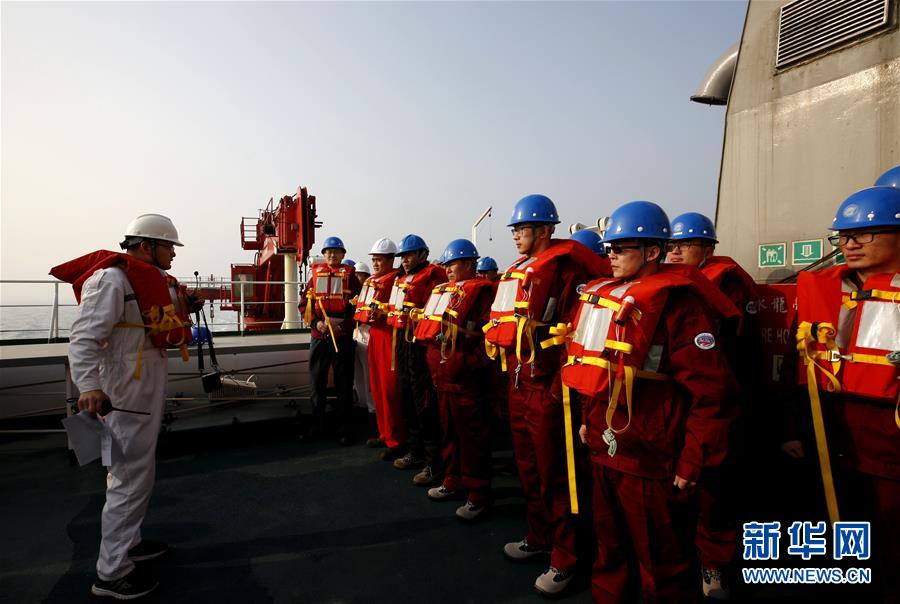
The five functional modules of the operating system are processor management, memory management, device management, file management and operation management. Processor management The most basic function of processor management is to process interrupt events. After configuring the operating system, various events can be processed.
The functions of the computer operating system include: processor management, memory management, device management, file management, job management and other functional modules. Processor management. The most basic function of processor management is to handle interrupt events. The processor can only detect interrupt events and generate interrupts and cannot process them.
Storage management is divided into several functions: storage allocation, storage sharing, storage protection, and storage expansion.Equipment management has the following functions: equipment allocation, equipment transmission control, and equipment independence. File management: file storage space management, directory management, file operation management, file protection.
The operating system should usually include the following five functional modules: (1) Processor management. When multiple programs are running at the same time, solve the problem of processor (cpu) time allocation. ( 2) Operation management. The program to complete an independent task and its required data constitute a task.
The function of the operating system is mainly reflected in the management of computer resources - microprocessors, memory, external devices, files and tasks. The operating system sets this management function into the corresponding program management module, and each management module is responsible for a certain function.That is, the five functions of the operating system.
The operating system has five functions: processor management: mainly controls and manages the work of the CPU. Storage management: mainly carry out memory allocation and management device management: mainly manage basic input and output device file management: responsible for the organization, storage, operation and protection of computer files, etc.

There are the following types of management systems: the management system of the finished product set. This kind of system is a stereotyped management system, which makes a small number of functional adjustments to the software through the parameter settings of the software.
Transaction Processing System (TPS): Operators and supervisors are used to input transactions, events, sort, list, merge updates, output detailed reports, lists and summaries, etc. Management Information System (MIS): Middle managers are used to input general transaction data and simple models to process routine reports.
Adgecal management system Academic management system is one of the most core management systems of the school, which is responsible for arranging and managing the school's teaching activities. It includes curriculum setting, teaching plan, teacher arrangement, examination management and other contents.
VMware vSphere: It is a virtualization management platform that can be used to manage virtual machines, storage and networks, etc. Nagios: It is an open source network monitoring system that can be used to monitor network devices, servers and applications, etc.
Financial subsystem: providing the function of financial management information; Decision support subsystem: make the logistics information system reach a higher level.
ERP management system brand Youyou, Jindie International Software, Wave Software, Dingjie Software, Zhenghang Software. Use friends.
1. System management refers to the information technology system that manages enterprises, and file management is one of the five major functions of the operating system.First, network management refers to the centralized management of resources on the network by network administrators through network management programs.
2. System Management regards organizational components as interrelated and interdependent systems, so it advocates applying the system concept to the management concept.
3. System management refers to the process of maintaining, managing and monitoring computer systems. As an important part of enterprise informatization construction, the importance of computer system management cannot be ignored.
UEFA Europa League-APP, download it now, new users will receive a novice gift pack.
The five functional modules of the operating system are processor management, memory management, device management, file management and operation management. Processor management The most basic function of processor management is to process interrupt events. After configuring the operating system, various events can be processed.
The functions of the computer operating system include: processor management, memory management, device management, file management, job management and other functional modules. Processor management. The most basic function of processor management is to handle interrupt events. The processor can only detect interrupt events and generate interrupts and cannot process them.
Storage management is divided into several functions: storage allocation, storage sharing, storage protection, and storage expansion.Equipment management has the following functions: equipment allocation, equipment transmission control, and equipment independence. File management: file storage space management, directory management, file operation management, file protection.
The operating system should usually include the following five functional modules: (1) Processor management. When multiple programs are running at the same time, solve the problem of processor (cpu) time allocation. ( 2) Operation management. The program to complete an independent task and its required data constitute a task.
The function of the operating system is mainly reflected in the management of computer resources - microprocessors, memory, external devices, files and tasks. The operating system sets this management function into the corresponding program management module, and each management module is responsible for a certain function.That is, the five functions of the operating system.
The operating system has five functions: processor management: mainly controls and manages the work of the CPU. Storage management: mainly carry out memory allocation and management device management: mainly manage basic input and output device file management: responsible for the organization, storage, operation and protection of computer files, etc.

There are the following types of management systems: the management system of the finished product set. This kind of system is a stereotyped management system, which makes a small number of functional adjustments to the software through the parameter settings of the software.
Transaction Processing System (TPS): Operators and supervisors are used to input transactions, events, sort, list, merge updates, output detailed reports, lists and summaries, etc. Management Information System (MIS): Middle managers are used to input general transaction data and simple models to process routine reports.
Adgecal management system Academic management system is one of the most core management systems of the school, which is responsible for arranging and managing the school's teaching activities. It includes curriculum setting, teaching plan, teacher arrangement, examination management and other contents.
VMware vSphere: It is a virtualization management platform that can be used to manage virtual machines, storage and networks, etc. Nagios: It is an open source network monitoring system that can be used to monitor network devices, servers and applications, etc.
Financial subsystem: providing the function of financial management information; Decision support subsystem: make the logistics information system reach a higher level.
ERP management system brand Youyou, Jindie International Software, Wave Software, Dingjie Software, Zhenghang Software. Use friends.
1. System management refers to the information technology system that manages enterprises, and file management is one of the five major functions of the operating system.First, network management refers to the centralized management of resources on the network by network administrators through network management programs.
2. System Management regards organizational components as interrelated and interdependent systems, so it advocates applying the system concept to the management concept.
3. System management refers to the process of maintaining, managing and monitoring computer systems. As an important part of enterprise informatization construction, the importance of computer system management cannot be ignored.
App to watch Champions League live free
author: 2025-02-05 21:55UEFA Champions League live streaming app
author: 2025-02-05 21:49UEFA Champions League live streaming free
author: 2025-02-05 20:19 DigiPlus Philippine
DigiPlus Philippine
336.81MB
Check LR stock price Philippines
LR stock price Philippines
399.66MB
Check UEFA TV
UEFA TV
111.54MB
Check UEFA TV
UEFA TV
997.72MB
Check Casino Plus GCash login
Casino Plus GCash login
522.89MB
Check Hearthstone Arena Tier List
Hearthstone Arena Tier List
674.49MB
Check UEFA European championship
UEFA European championship
978.87MB
Check UEFA live free
UEFA live free
375.95MB
Check UEFA Champions League live streaming app
UEFA Champions League live streaming app
375.91MB
Check App to watch Champions League live free
App to watch Champions League live free
536.42MB
Check UEFA Champions League live streaming free
UEFA Champions League live streaming free
237.44MB
Check Casino Plus app
Casino Plus app
885.83MB
Check UEFA Champions League live streaming free
UEFA Champions League live streaming free
697.79MB
Check UEFA Champions League live streaming free
UEFA Champions League live streaming free
489.26MB
Check Hearthstone arena class win rates reddit
Hearthstone arena class win rates reddit
538.19MB
Check Casino redeem
Casino redeem
766.35MB
Check Champions League
Champions League
869.75MB
Check Casino Plus login register
Casino Plus login register
255.98MB
Check Arena Plus login
Arena Plus login
759.39MB
Check UEFA Champions League standings
UEFA Champions League standings
976.16MB
Check bingo plus update today
bingo plus update today
698.43MB
Check Hearthstone deck
Hearthstone deck
397.46MB
Check European Cup live
European Cup live
365.63MB
Check TNT Sports
TNT Sports
951.37MB
Check Casino free 100 no deposit
Casino free 100 no deposit
866.35MB
Check DigiPlus stock
DigiPlus stock
257.91MB
Check Hearthstone Arena class tier list 2024
Hearthstone Arena class tier list 2024
758.99MB
Check Europa League app
Europa League app
785.86MB
Check Casino Plus login register
Casino Plus login register
839.51MB
Check Hearthstone Arena Tier List
Hearthstone Arena Tier List
427.78MB
Check UEFA Europa League
UEFA Europa League
734.19MB
Check Arena Plus login
Arena Plus login
268.61MB
Check UEFA EURO
UEFA EURO
948.44MB
Check casino plus free 100
casino plus free 100
114.21MB
Check UEFA Champions League live streaming free
UEFA Champions League live streaming free
861.38MB
Check Hearthstone deck
Hearthstone deck
496.42MB
Check
Scan to install
UEFA Europa League to discover more
Netizen comments More
2789 Casino Plus free 100
2025-02-05 22:44 recommend
2010 UEFA Champions League live streaming free
2025-02-05 22:37 recommend
1113 bingo plus update today Philippines
2025-02-05 22:00 recommend
2610 UEFA EURO
2025-02-05 21:58 recommend
358 bingo plus update today Philippines
2025-02-05 20:26 recommend